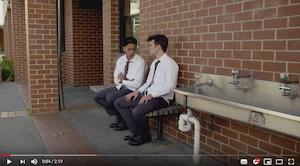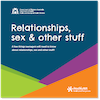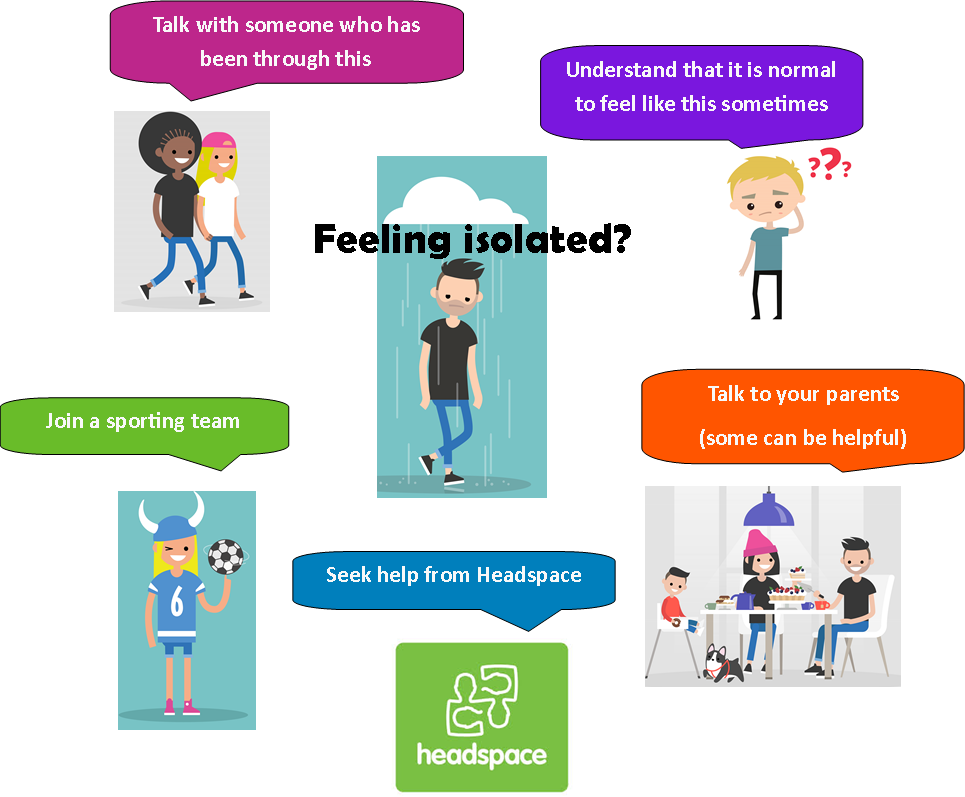
Learning objective
Students explore the physical, emotional, and social changes associated with puberty.
Take home messages
Curriculum links
WA Curriculum
HPE: Personal, social and community health
- Strategies to cope with and manage the impact of changes and transitions.
International technical guidance on sexuality education
Key concept 6.3 Puberty (12-15 years)
- Puberty is a time of sexual maturation that leads to major physical, emotional, social, and cognitive changes that can be exciting as well as stressful throughout adolescence.
Materials
Before you get started
- Students must complete Puberty part 1 prior to this lesson.
- Protective interrupting - Teachers need to know and understand how to use this technique to prevent students from potentially disclosing sensitive information or abuse in front of other students.
- Dealing with disclosures - Teachers must be aware of school and legal procedures if a student discloses personal issues, particularly disclosures of sexual abuse.
- Question box - Have a question box available in every lesson to allow students the opportunity to ask questions that may be too embarrassing or unsafe for them to ask openly in class. See Setting up the question box for further information. For ways to answer some of the curly questions, see Scripted answers to FAQs.
- Preview Laugh and learn - puberty 2 video (2min 19sec) to determine suitability for your students.
Learning activities
Group agreement
5 minutes
Teaching tip: A group agreement must be established before any Relationships and Sexuality Education (RSE) program begins to ensure a safe learning environment. Read Essential Tool: Establishing a group agreement for tips on how to create one and what to include.
- Revise or create the class group agreement.
Laugh and learn videos - puberty part 2
5 minutes
- Say:
"Many of you have probably covered much of this information in primary school. This session is going to look at what you would like to have known about puberty when you first started learning about it. As with all things, there are positive and there are challenges about puberty." - Watch Laugh and learn video - puberty part 2 (2min 19sec)

Ask the following questions:
What do you think of the use of humour in this video?
Does it help get the information across?
What is the message/information you took from this video?
Puberty positivity
10 minutes
- Think-pair-share: Discuss the positives of puberty (Puberty positivity).
(Possible answers: getting older and more mature; having greater independence; body changes are interesting; able to do different things; getting taller and stronger.)
Students may like to use the following resources for reference:

- Get the Facts: Puberty
- Get the Facts: Puberty animation
- SECCA App - includes a bank of 2000 images designed to support access to RSE for people of all ages and abilities
- Share ideas with whole class and discuss.
Changes during puberty
10 minutes
- Acknowledge some of the negatives that many people associate with puberty.
- Guess my category: Place three hoops on the group (or butchers paper, or record electronically) to represent the categories 'physical', 'emotional', and 'social/relationships' but do not tell the students what they represent (i.e. do not label the categories).
- Ask students to write a change associated with puberty onto sticky notes. Read each sticky note to the class and place them into the relative hoop.
Ask:
How have I grouped these answers? OR Why have I grouped the answers this way?
What labels would you give each group?
Do any of the groups overlap? (Hoops can then be joined to form a Venn diagram and sticky notes regrouped accordingly)
(Emotional and social overlap in most ways. Many of the physical answers could lead to some of the emotional/social answers)Do some groups have more sticky notes than others? Why do you think this is?
Trigger warning: Students may raise sensitive topics in this session. Teachers will need to be prepared for potential responses related to things such as gender identity, sexual orientation, religious beliefs, cultural beliefs, etc).
Possible responses
Physical Getting first period Waiting for first period Period cramps Managing periods at school or when out Sweat/body odour Developing breasts Not developing breasts Size of breasts Voice breaking Growing pains Getting taller Not getting taller Pimples and acne Pubic hair (growing early, growing late, growing too much, not growing enough, etc) Making decisions about whether to remove hair or not Weight gain |
Emotional Mood swings/mood changes Embarrassed Anxiety Selfishness Become self-involved Withdrawn Isolated Emotional Fear of being judged No one understands me My parents don't 'get' me Exam pressure Negative body image (dieting, eating disorders, self-harm) Confusion Sexual feelings Shy |
Social/relationship Changing relationships with friends Best friend moves to a different school Best friend has a boyfriend/girlfriend (and no time for me) Friend smoking/drinking/using drugs and I don't like it I fancy my best friend Nasty things were posted about me online Not fitting in (i.e. not having the 'right' clothes, phone, etc) Challenging family boundaries Too much independence or not enough independence I'm not allowed to date boys/girls I have a curfew I have to work or do chores I'm not allowed to cut my hair, get a piercing, shave my legs, etc Not allowed to go out without an adult Restrictions on screen time/internet/phone use Restrictions on clothing (e.g. Mum says I can't leave the house like this. e.g. 2 Cultural clothing) Fancying someone and not being able to tell them All my best friends have boyfriends/girlfriends. I don't. Crushes Dealing with rejection Navigating new relationships Breaking up Questioning sexual identity (e.g. Am I gay?) I sent a naked pic A private image I sent got shared without consent |
Positive coping strategies
20 minutes
- Say:
"It is important for people to have a range of positive coping strategies to help with the potential challenges of puberty. No one person will feel exactly the same as others and no one strategy will work for everyone, so lots of different ideas are needed. Lots of skills that you already have can be used to think about how you can deal with these potential challenges - seeking help, problem solving, and communication. We are going to come up with lots of ways that you or someone you know might find useful." - In pairs, students to be given one challenge of puberty. Use the mindmap strategy to brainstorm some ways of dealing positively with the challenge allocated. (PC options: Word SmartArt Tools; Canva - Education - Mindmap; Xmind; Bubble.us. Table app: Popplet). Model an example and have students offer some positive coping strategies.

- Other possible copings strategies:
- Talking to a teacher/school nurse/school psychologist/chaplain/doctor
- Getting enough sleep
- Turning off phones/devices and going outside
- Using Kids Helpline
- Meditation/Yoga
- Remembering that puberty doesn't last forever - you will get though it!
- Getting questions answered on Get the Facts website
- Share and display the mindmaps.
3-2-1 Reflection
Reflection: What I wish I had know about puberty BEFORE puberty!
5 minutes
- Using preferred medium, students complete the following sentence:
'Puberty! I wish I had known that....because...'
Examples:
Puberty! I wish I had known that I could talk to Headspace when I was feeling low because I didn't realise there were so many organisations like Headspace that offer help for free.
Puberty! I wish I known that I didn't need to worry about hair growing in weird places because now I think it's cool.
Trigger warning Some students may disclose personal information when using 'I' statements. Some students may find this 'I' statement too personal or confronting. Consider if this following alternate wording is better for your students or offer them the choice.
'Puberty! One thing I would tell someone that is about to start going through puberty is....because...' - Share in small groups.
- Discuss the following in small groups or record in a journal.
How easy was it to think of the positives of puberty? Why?
Why does puberty have so much misinformation around it?
What are two coping strategies that appeal to you and why do you like them?
What's one positive thing about puberty that you would say to a younger person?
Health promoting schools
Background teacher note: Health promoting schools framework.
Partnerships with parents
- Talk Soon. Talk Often: a guide for parents talking to their kids about sex is a free resource that can be bulk ordered by schools and an interactive website. Send a copy home to parents prior to starting your RSE program. The booklet offers ages and stage related information on puberty (and other topics) so that parents can reinforce the topics covered in class. (How to order hard copies.)
- Order copies of Puberty and Relationships, sex and other stuff to be sent home for parents.
- Run a parent workshop prior to delivering RSE lessons so that parents can see the resources used, ask questions and find out how to support the school program by continuing conversations at home.
- Add the Get the Facts link to your website or e-news.
- The SECCA app is a free resource that includes a bank of 2000 images designed to support access to RSE for people of all ages and abilities. Share the link in your newsletters.
Partnerships with school staff
- Invite the school health professionals and pastoral care staff (school nurse, school psychologist, chaplain, boarding house master, etc) to a class or an assembly to introduce them to the students. Have them talk to the students about their role and how they can help. For example:
- If you get your period at school and need help, you can go to...
- If you are worried about something and need to talk, you can go to...




